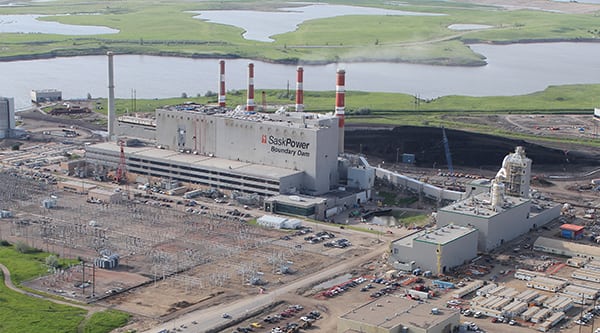Canada to Allow Saskatchewan to Keep Coal Plants Running Beyond 2030
An agreement between Canada's federal government and Saskatchewan will allow the province to continue operating its coal-fired power plants beyond 2030 as long as it achieves equivalent emission-reduction outcomes.
The Office of the Minister of Environment and Climate Change and the Office of the Minister of Environment for Saskatchewan reached a deal to finalize an equivalency agreement on November 28. It comes on the heels of the federal government's widely publicized move on November 21 to phase-out the nation's coal generation that lacks carbon capture and sequestration (CCS) by 2030.
Once finalized, the equivalency agreement on coal-fired power plant rules will allow Saskatchewan to meet the emission outcomes of the federal government's coal-fired power plant rules on an electricity system-wide basis-as opposed to just from its coal-fired power plants.
In 2015, of a total 23,744 GWh consumed in the province, 46.4% came from coal, 33.6% from gas, 14.4% from hydro, 2.9% from wind, 0.6% from other sources, and 2.1% from imports. The province has established an aggressive plan to increase its renewable generation capacity from the 17.3% in 2015 to 50% by 2030 in a bid to cut 40% of its carbon emissions compared to 2005 levels.
The agreement also gives the province time to evaluate future opportunities for CCS. The province completed the world's first full-scale post-combustion CCS system on an operating coal-fired unit in 2014-SaskPower's 110-MW Unit 3 at the Boundary Dam Power Station in Estevan. On November 3, the utility said the plant was meeting design expectations. It was operating reliably and was on track to capture 800,000 tonnes of carbon dioxide in 2016, it added.
In a statement, Ottawa said that the agreement "acknowledges that the province has introduced CCS 'in advance of, and beyond regulatory requirements' and that it has a significant public commitment to renewable energy."
 In October 2014, SaskPower's Boundary Dam Unit 3 in Estevan, Saskatchewan, became the first coal-fired power plant to employ full-scale post-combustion carbon capture and sequestration. Courtesy: SaskPower
In October 2014, SaskPower's Boundary Dam Unit 3 in Estevan, Saskatchewan, became the first coal-fired power plant to employ full-scale post-combustion carbon capture and sequestration. Courtesy: SaskPower-Sonal Patel, associate editor (@POWERmagazine, @sonalcpatel)
The post Canada to Allow Saskatchewan to Keep Coal Plants Running Beyond 2030 appeared first on POWER Magazine.